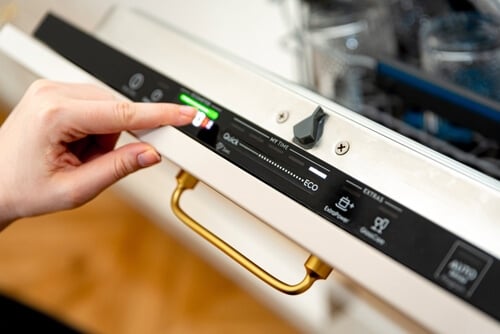If your business energy contract is coming to an end, or you're moving business premises, then it's important to switch your supplier.
If you fail to renegotiate your energy tariff, you're likely to be placed on a deemed contract.
A deemed contract is more likely than not your supplier's most expensive deal. Ofgem estimates that prices on deemed contracts are on average 80% higher than rates charged in negotiated contracts.

What is a deemed tariff contract?
A deemed tariff contract is a standard energy deal that your business is automatically placed on when you move into new premises without transferring your old deal or arranging a new contract in advance of the move.
Why is my business on a deemed contract?
There are 2 reasons why you might be put on a deemed contract.
The first is if you’ve recently moved business premises and have started using gas and electricity without agreeing a contract with a supplier beforehand. The building’s current energy supplier puts your business on a deemed rates contract.
The second reason you might be put on a deemed contract is if you carry on using energy after your current deal has come to an end. This might be because the deal expired or because you or your supplier ended the contract.
If your contract doesn’t say what rate you should pay after it comes to an end, it’s very likely that you're going to be moved onto a deemed contract. As business energy suppliers don’t offer a dual fuel option, you could find yourself on a deemed gas and electricity tariff when you move into a new business property.
The good news is that moving to a deemed tariff means you won’t be left without energy. But the bad news is that the deeming rates are likely to be among your supplier’s most expensive.
So make sure you switch to a better deal as soon as possible.
Compare business energy quotes
What are my rights if I'm placed on deemed supply rates?
If your supplier places you on a deemed price energy contract, they have to give you a full copy of the contract if you ask for it. Your supplier must do everything they reasonably can to outline the principal terms of the deal, and give you a full breakdown of the charges and fees.
They also have to do all they can to tell you about the alternative deals available, and make sure the terms of its deemed contract are clear and properly explained.
The good news is you won’t be tied into a deemed rates contract in the same way you’d be tied into a formal contract. This means you can terminate the deal at any time and switch to a new business energy supplier without incurring any penalty.
If you’re on deeming rates, your supplier can’t use an outstanding debt or a contract you’ve signed as a reason to stop you switching to a better deal.
Can microbusinesses be placed on a deemed rates tariff?
If your business employs no more than 10 members of staff, has an annual turnover or balance sheet of €2 million or less, and uses no more than 100,000 kWh of electricity and 293,000 kWh of gas each year, it's classed a microbusiness.
When it comes to energy supply, microbusiness tariffs are structured much more like household energy deals, and you can let your supplier know that you want to switch at any point during your agreement. Even so, if you move your microbusiness into a new property, your supplier can place you on a deemed contract.
That’s why it's important to compare business energy quotes when you move into a new business property – ideally beforehand, so your new deal is up and running on the day you move in.
Could my business be on a deemed export feed-in tariff?
No. Although it sounds similar, a deemed export feed-in tariff is when your supplier estimates the number of generated units you have put back into the National Grid, using a renewable energy supply such as commercial solar panels.
This is only relevant if you generate your own renewable energy, you had your system installed on or before 31 March 2019, and you applied for the scheme by 31 March 2020. Try not to get this confused with a business energy deemed contract.
What is a rollover tariff?
If you let an old deal lapse without renewing with your current supplier – or without agreeing a deal with a new supplier – they might move you onto a rollover tariff.
Again, this comes with expensive prices. But unlike a deemed contract, you won’t be able to switch at any time as the supplier has automatically signed you up for another year.
It’s important to make sure you know when your contract ends so you can take action.
What other types of business energy contract could I switch to?
When switching to a new supplier, you may be offered 2 types of deal – a variable-rate tariff or a fixed-rate tariff.
A variable-rate tariff links your unit rate (the price you pay for each unit of energy you use) to the current prices in the energy market. This means your price fluctuates and your bills can go up and down, even if you use the same amount of gas and electricity each month.
With a fixed-rate deal, the unit rate you pay is locked in for the length of the contract. This means your rate stays the same, even if your supplier puts their prices up. Your monthly bills still vary depending on the amount of gas and electricity you use.
Fixed-rate deals usually offer more competitive prices and allow you to budget your energy costs with more certainty while the contract lasts.
How can I switch from my deemed contract?
If you’ve recently moved your business into a new property, and haven’t agreed a new energy deal, you need to switch as soon as possible. Remember, deemed contracts don’t have a switching window, so you’re free to switch at any time.
The switch should take around 4-6 weeks to complete, so try to get a business energy comparison well in advance of your move. The energy company should supply your energy using the existing network, so there's no need for any work at your premises.
To switch from your deemed contract, we’ve partnered with Bionic to find our best commercial gas and electric deals for your business. Call now on 0800 158 5296 or request a commercial energy quote and we can give you a call back.







